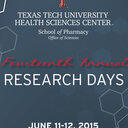Inula sesquiterpenoids: structural diversity, cytotoxicity and anti-tumor activity.
Ključne riječi
Sažetak
BACKGROUND
The plants of the genus Inula (Asteraceae) are widely distributed throughout Europe, Africa and Asia, and many of these plants have long been used in folk medicine. This genus is a rich source of sesquiterpenoids, which exhibit a wide range of biological activities. Recently, a series of bioactive sesquiterpenoid dimers, with unusual carbon skeletons, have been reported and these have gathered considerable interest.
METHODS
This article systematically reviews sesquiterpenoids isolated from the genus Inula that have appeared in literature up to August 2013, critically highlighting their anti-tumoral activities and relevant mechanistic insights. The authors also discuss the initial structure-activity relationships for the cytotoxic and anti-tumoral activities of the Inula sesquiterpenoids. Finally, the authors discuss the challenges and potential applications of these sesquiterpenoids in the future.
CONCLUSIONS
Cytotoxic and anti-tumor activities of Inula sesquiterpenoids have been extensively studied since the 1970s. One promising compound, Japonicone A, a dimeric sesquiterpene lactone from traditional herb Inula japonica, has displayed potent in vitro and in vivo anti-tumor activity against Burkitt's lymphoma. Additionally, acetylbritannilactone is thought to be capable of suppressing the abnormal vascular smooth muscle cell proliferation, with the induction of apoptosis in vivo and in vitro. In this regard, it may be worthwhile further investigating acetylbritannilactone in patients with vascular restenosis. Furthermore, given the anti-inflammatory property of britanin, clinical studies on chronic bronchitis and asthma, using the ethanol extract of I. japonica, are currently underway in South Korea. However, despite demonstrating good therapeutic effects, additional pharmacological and toxicological studies are still needed.





